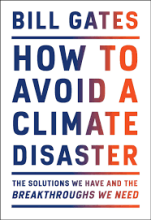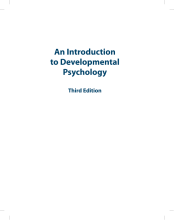Why Zero? - When it doesn't rain, it pours
6 important questions on Why Zero? - When it doesn't rain, it pours
According to Bill Gates, insect-borne diseases, will appear in places where these have never appeared before because of climate change. How can you explain this?
- As it gets hotter, mosquitoes will start living in new places (they like hummid, so they will move from places that dry out to places that become more humid). As a result, insect-borne diseases, like malaria, will appear in places where they've never appeared before.
A problem related to climate change is heatstroke, which is linked to humidity. How can you explain this?
- Air can contain only a certain amount of water vapor, and at some point it hits a ceiling, becoming so saturated that it can't absorb any more moisture.
- The human body's ability to cool off depends on the air's ability to absorb sweat as it evaporates. If the air can't absorb your sweat, then it can't cool off, no matter how much you perspire.
- Your body temperature stays high, and if nothing changes, you die of heatstroke within hours.
One study looked at the relationship between wheather shocks and asylum applications to the European Union (EU). Which two conclusions came from this research?
- Even with moderate warming, asylum applications could increase with 28% (450,000 a year), by the end of the century.
- By the time it's 2080, lower crop yields would cause between 2% and 10% of adults in Mexico to try to cross the border into the United States (US).
- Higher grades + faster learning
- Never study anything twice
- 100% sure, 100% understanding
How many lives will climate change cause at the mid-century and the end of the century, according to Bill Gates?
- By mid-century, rising of global temperatures are projected to raise global mortality by 14 deaths per 100,000.
- By the end of the century, if emissions growth stays high, climate change could cost 75 extra deaths per 100,000 people.
Bill Gates describes two keypoints of what we can do about climate change, about which two keypoints is he talking about?
- Adaptation: We can try to minimize the impact of the changes that are already here and that we know are coming. This focus will be mainly for the agriculture team at the Gates Foundation, because the climate change will have the worst impact on the world's poorest people (most of them are farmers).
- For example = we're funding a lot of research into new varieties of crops that tolerate droughts and floods.
- Mitigation: Stop adding greenhouse gases to the atmosphere, so we have to get to net-zero emissions by 2050.
When the temperatures rises a little bit, for an example from 1.5 to 2 degrees, it doesn't sound like a big problem, why is this actually a very big problem?
- A 2-degree rise wouldn't simply be 33% worse than 1.5, but it could be 100% worse.
The question on the page originate from the summary of the following study material:
- A unique study and practice tool
- Never study anything twice again
- Get the grades you hope for
- 100% sure, 100% understanding
































